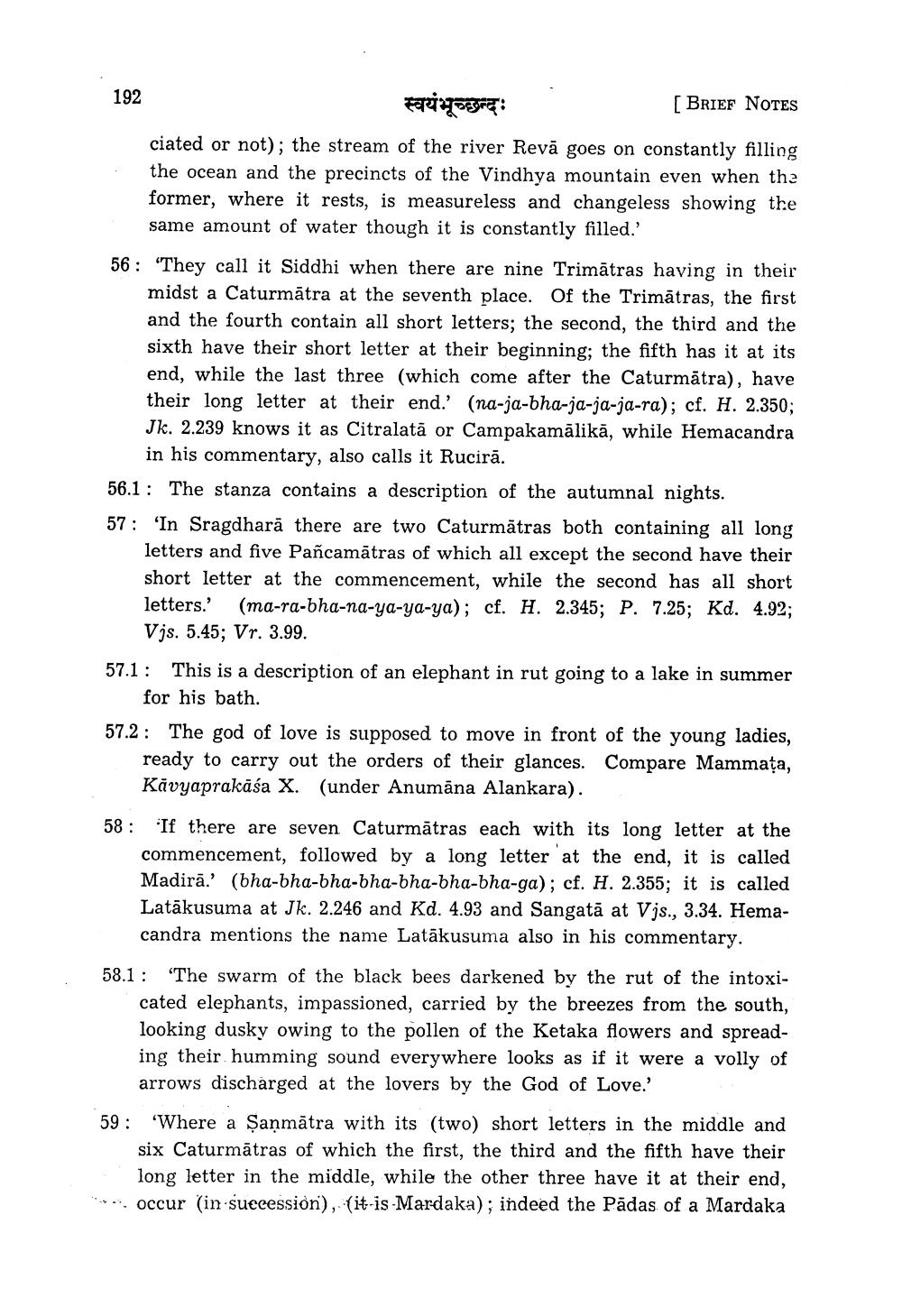________________
192
स्वयंभूच्छन्दः
[ BRIEF NOTES ciated or not); the stream of the river Revā goes on constantly filling the ocean and the precincts of the Vindhya mountain even when the former, where it rests, is measureless and changeless showing the same amount of water though it is constantly filled.'
56: 'They call it Siddhi when there are nine Trimātras having in their
midst a Caturmātra at the seventh place. Of the Trimātras, the first and the fourth contain all short letters; the second, the third and the sixth have their short letter at their beginning; the fifth has it at its end, while the last three (which come after the Caturmātra), have their long letter at their end.' (na-ja-bha-ja-ja-ja-ra); cf. H. 2.350; Jk. 2.239 knows it as Citralatā or Campakamālikā, while Hemacandra
in his commentary, also calls it Rucirā. 56.1 : The stanza contains a description of the autumnal nights. 57: 'In Sragdharā there are two Caturmātras both containing all long
letters and five Pañcamātras of which all except the second have their short letter at the commencement, while the second has all short letters.' (ma-ra-bha-na-ya-ya-ya); cf. H. 2.345; P. 7.25; Kd. 4.92;
Vjs. 5.45; Vr. 3.99. 57.1: This is a description of an elephant in rut going to a lake in summer
for his bath. 57.2 : The god of love is supposed to move in front of the young ladies,
ready to carry out the orders of their glances. Compare Mammața, Kävyaprakāśa X. (under Anumāna Alankara).
a).
58: If there are seven Caturmātras each with its long letter at the
commencement, followed by a long letter at the end, it is called Madirā.' (bha-bha-bha-bha-bha-bha-bha-ga); cf. H. 2.355; it is called Latākusuma at Jk. 2.246 and Kd. 4.93 and Sangatā at Vjs., 3.34. Hemacandra mentions the name Latākusuma also in his commentary.
58.1: "The swarm of the black bees darkened by the rut of the intoxi
cated elephants, impassioned, carried by the breezes from the south, looking dusky owing to the pollen of the Ketaka flowers and spreading their humming sound everywhere looks as if it were a volly of
arrows discharged at the lovers by the God of Love.' 59: 'Where a Şaņmātra with its (two) short letters in the middle and
six Caturmätras of which the first, the third and the fifth have their
long letter in the middle, while the other three have it at their end, > occur (in successiòn), (it-is-Mardaka); indeed the Pädas of a Mardaka




